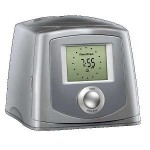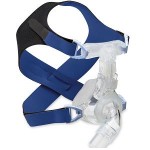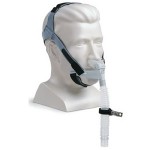 If you suspect that you’re suffering from sleep apnea, you need to know some important facts about this common, and potentially dangerous, sleep disorder.
If you suspect that you’re suffering from sleep apnea, you need to know some important facts about this common, and potentially dangerous, sleep disorder.
Sleep apnea drains the joy out of life by exhausting sufferers and impairing their cognitive functioning. That’s why it’s so important to get help if you suspect that you are suffering from any undiagnosed form of sleep apnea…
Sleep apnea sufferers should be diagnosed by their family doctors and treated by sleep specialists; a physician will let a patient know which of the three forms of sleep apnea they are dealing with.
The three types are classified as obstructive sleep apnea, central sleep apnea, and mixed sleep apnea…in all forms of this sleep disorder, respiratory problems during sleep trigger a decrease in oxygen intake to the lungs.
Poor blood oxygen levels then prompt the brain to “order” the body to breathe again. Sleep apnea actually consists of periodic episodes of “not breathing” that may occur hundreds of times in one night!
Sleep apnea sufferers wake up exhausted, out of sorts, and sometimes with significant headaches. During the day, their cognitive functioning is impaired due to their chronic fatigue.
By learning about the different types of sleep apnea, you may be able to pinpoint exactly which type is affecting you and diminishing your quality of life…
Obstructive Sleep Apnea
 This type of sleep apnea is characterized by pauses or reductions in breathing airflow. The reason for these pauses and reductions are linked with changes to the airway. Usually, this part of the body is blocked or narrowed due to weight gain or other variables.
This type of sleep apnea is characterized by pauses or reductions in breathing airflow. The reason for these pauses and reductions are linked with changes to the airway. Usually, this part of the body is blocked or narrowed due to weight gain or other variables.
Whenever a person with obstructive sleep apnea stops breathing, they are experiencing apnea; decreases in oxygen flow are known as hypopnea.
While most people do suffer from occasional apnea issues while sleeping, people with bona fide obstructive sleep apnea will cycle through these episodes all night long, every single night…
Men over 35 are more prone to this type of sleep disorder; so are people with large necks (due to weight gain or genetics). Swollen or pronounced tonsils and adenoids may also trigger this form of sleep apnea.
The best treatments for obstructive sleep apnea are CPAP machines that regulate airflow for deep, restful sleep. Usually, the cost of purchasing these effective sleep apnea treatments will be covered by your medical insurance.
Central Sleep Apnea
 Central sleep apnea occurs when breathing is constantly interrupted during sleep. However, this type of sleep apnea is caused by the brain, which doesn’t send proper signals to muscles that govern breathing.
Central sleep apnea occurs when breathing is constantly interrupted during sleep. However, this type of sleep apnea is caused by the brain, which doesn’t send proper signals to muscles that govern breathing.
In contrast to obstructive sleep apnea, there is no blockage or narrowing of the airway.
This form of sleep apnea is quite uncommon, and it may be related to heart health issues or strokes. People who live at very high altitudes may be at higher risk for developing central sleep apnea.
Breathing devices, such as CPAP nasal masks, may be used to deliver vital supplemental oxygen to the body and brain during sleep.
Mixed Sleep Apnea
 As the name suggests, Mixed Sleep Apnea is a combination of obstructive and central sleep apnea symptoms. All of the common symptoms of sleep apnea – such as snoring, gasping, and stop-start breathing, will figure into this disorder.
As the name suggests, Mixed Sleep Apnea is a combination of obstructive and central sleep apnea symptoms. All of the common symptoms of sleep apnea – such as snoring, gasping, and stop-start breathing, will figure into this disorder.
Mixed sleep apnea may be caused by a range of factors, such as facial structure (receding chins and big tongues may cause the disorder), smoking, alcohol consumption, or substance abuse of other depressants.
Mixed sleep apnea may be treated by CPAP nasal pillows that are attached to high-tech, easy-to-use CPAP machines.
Get Help Today…
There is no need to suffer; with the latest sleep apnea treatments, you can sleep peacefully and deeply all night long, and then wake up refreshed and energized.
Take control of your sleep apnea today; speak to your family doctor, and then seek out the services of a highly-skilled and compassionate sleep apnea treatment specialist.
